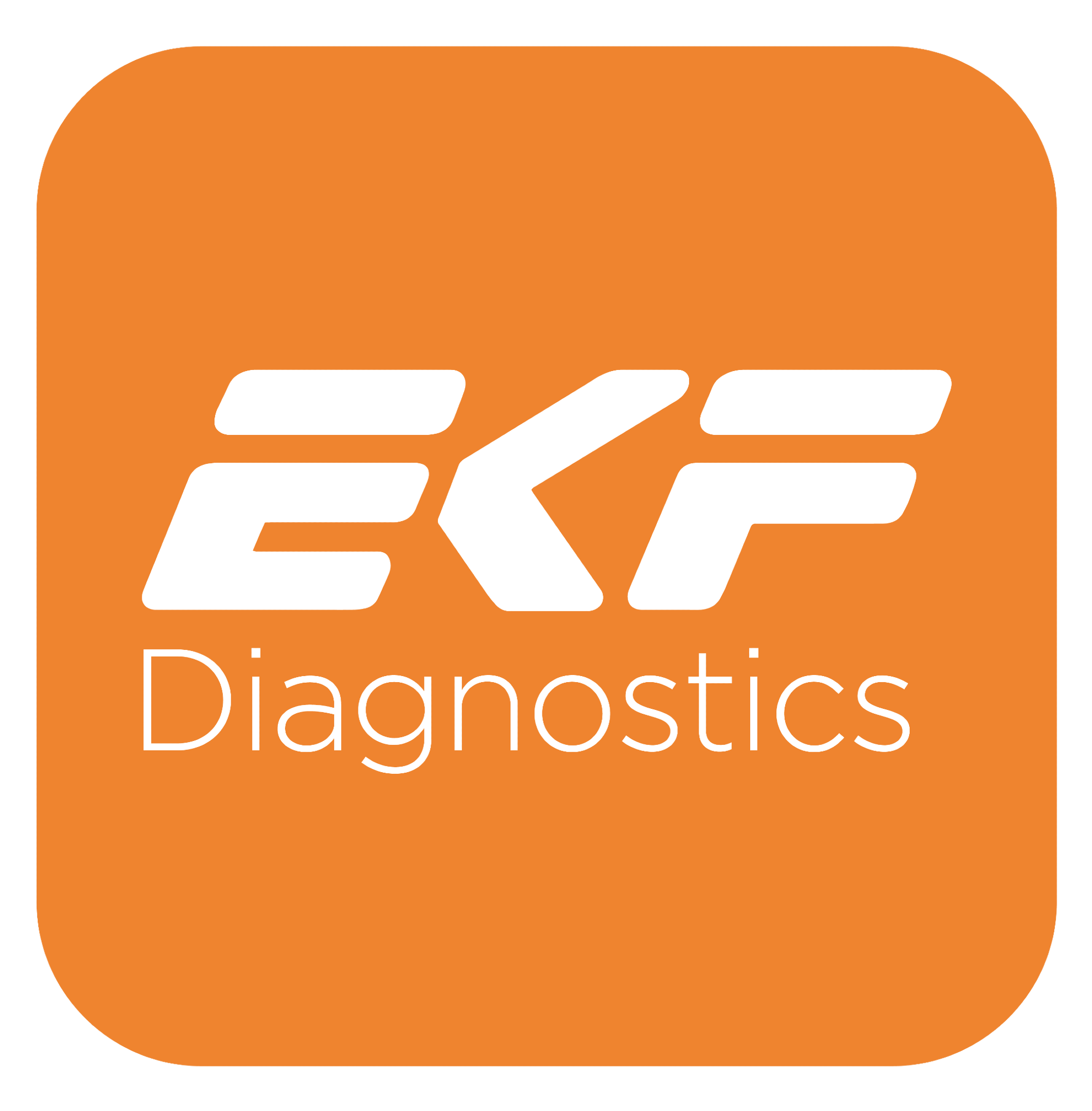Diagnostic and treatment monitoring protocols for a range of disorders rely on measuring specific blood parameters, such as blood sugar. The determination of these levels has traditionally been determined by sending blood samples to the laboratory for analysis. However, recent advances in technology have made it possible for some blood tests, such as HbA1c, to be performed outside the lab.

Image credit: Jan H Anderson | Shutterstock
The provision of such analysis in the clinic or doctor's surgery is typically referred to as point-of-care testing (POCT). In this way, treatment decisions can be made straight away without the need to wait for the return of laboratory findings.
POCT has thus become a valuable aspect of healthcare delivery since it facilitates provision of a more rapid service. It allows immediate evaluation of the status of a critically ill patient and reduces the number of visits to outpatient clinics. Consequently, POCT has the potential to improve patient experience and treatment outcomes1.
Since POCT is typically performed by healthcare professionals with limited or no laboratory testing experience, it is important that the analyses are easy to conduct and reliably produce accurate data. If the devices do not meet the same quality criteria as the main laboratory analyzers, the time savings achieved with POCT will be negated by the effects of decisions based on erroneous information.
HbA1c testing
POCT has proved particularly valuable in diabetes clinics. Due to the serious health complications caused by persistently high blood glucose levels, the degree of control of blood sugar in patients with diabetes is regularly evaluated by measuring glycated hemoglobin (HbA1c) values.
When blood glucose concentrations are very high, glucose binds to hemoglobin. The HbA1c test measures how much glucose is bound to hemoglobin. Since blood cells are typically replaced every 3 months, this measurement gives an idea of the average level of blood glucose during the last 3 months.
The measurement of HbA1c has recently been standardized through the introduction of performance criteria that ensure test results correlate directly with the findings of the Diabetes Control and Complications Trial and the United Kingdom Prospective Diabetes Study that established the direct relationships between HbA1c levels and outcome risks in patients with diabetes4.
Devices to facilitate point-of-care testing
There are numerous POCT systems available, many of which have been certified as being reliable by meeting criteria required by the relevant regulatory body, such as CE (conforms with relevant EU directives regarding health and safety or environmental protection), and the US Food and Drug Administration (FDA).
However, the evaluation of instrument compliance with the necessary certification criteria, is generally performed by the manufacturers under ideal conditions. Since POCT in clinical practice may not be conducted under ideal conditions, certification marks do not necessarily indicate accurate performance in real life2.
External quality assessment (EQA) provides a great tool for assessing the true performance of POCT devices, but not all devices are enrolled in such schemes2,3. The situation is further exacerbated by the fact that the design of some devices precludes routine internal quality control to verify the calibration of devices. It therefore remains necessary for independent laboratory evaluations to confirm (or otherwise) the real accuracy of POCT devices during every-day usage.
Devices for HbA1c point-of-care testing
There are now in excess of 30 HbA1c POCT devices on the market. In light of the escalation in the use of such equipment, The European Reference Laboratory for Glycohemglobin provides manufacturers with support and reference values for providing an independent review of the analytical performance of their instruments5.
A range of HbA1c POC instruments were evaluated for accuracy and precision according to Clinical and Laboratory Standards Institute (CLSI) protocols against International Federation of Clinical Chemistry and Laboratory Medicine (IFCC) secondary reference measurement procedures. The findings of this evaluation were recently published in the Journal of Diabetes Science and Technology6.
Three of the devices use a boronate affinity methodology (Quo-Lab [EKF Diagnostics PLC, Cardiff, UK], Afinion2™ [Abbott, Oslo, Norway], HbA1c 501 [HemoCue Diagnostics, Ängelholm, Sweden]) and one is based on the enzymatic determination of HbA1c (A1Care [i-SENSE, Seoul, Korea].
Boronate Fluorescence Quenching Technology used to measure HbA1c in Quo-Lab
The authors reported excellent analytical performance for the Quo-Lab and the Afinion2. The accuracy of the HbA1c 501 was deemed acceptable, but the A1Care was found to be unacceptable for the determination of HbA1c6.
The Quo-Lab and the Afinion2 both met the NGSP criteria when evaluated against four secondary reference measurement procedures. Although the HbA1c 501 met routine laboratory criteria, it only demonstrated borderline analytical performance. In contrast, the A1Care failed on all criteria.
This latest data highlights the care that must be taken when selecting a device for POCT. The analytical performance of POCT instruments for HbA1c has been shown to be continually improving. However, although it is possible to gain accurate HbA1c data outside the laboratory, this may not always be the case and the choice of POCT device should be evidence-based. Robust independent evaluations of POCT device accuracy thus remain invaluable for assisting such decision making and ensuring that the best patient care is provided.
References
- Patzer KH, et al. Implementation of HbA1c point of care testing in 3 German Medical Practices: impact on workflow and physician, staff, and patient satisfaction. J Diabetes Sci Technol. 2018;3:687‑694.
- NGSP website note CAP survey data. Accessed April 2018.
- Centers for Medicare & Medicaid Services.
- NGSP. Harmonizing hemoglobin A1c testing. Available at: www.ngsp.org
- Westgard. Available at: https://james.westgard.com/the_westgard_rules/2017/08/are-there-new-erna-lenters-westra-rulesfor-hba1c.html . Accessed April 2018.
- Lenters-Westra E and English E. Evaluation of Four HbA1c Point-of-Care Devices Using International Quality Targets: Are They Fit for the Purpose? Journal of Diabetes Science and Technology 2018;Special Issue:1–9.
About EKF Diagnostics
EKF Diagnostics is a global medical diagnostics business with a long history in point-of-care testing and central laboratory manufacturing. Our products have a hard earned reputation for ease of use, reliability and accuracy.
Our core focus is the Point of Care market with over 80,000 haemoglobin, A1c, glucose and lactate analyzers in regular use in more than 100 countries running more than 50m tests every year.
Our range of HbA1c analyzers and glucose analyzers are used in GP surgeries, sports clinics, and diabetes clinics. They deliver fast and reliable results that provide both practitioner and patient with the information they need to make clinical or lifestyle decisions in minutes.
EKF Diagnostics offer the largest range of hemoglobin and hematocrit analyzers on the market, giving physicians and specialists a choice of product with different methodology, measurement speed, connectivity and price options. Our aim is to make blood donation and anaemia screening easier, more affordable and more accessible than ever before.
The EKF Maternal & Women’s Health Point of Care range aims to improve healthcare outcomes for women and children by providing physicians with a suite of products covering pregnancy testing, anaemia screening, fetal scalp lactate testing and post birth creamatocrit measurement.
EKF Diagnostics is also a global manufacturer of central laboratory products including Stanbio Chemistry reagents, benchtop laboratory analyzers, rapid tests and centrifuges. Our chemistry reagents can be used on the majority of analyzers found in hospital laboratories around the world.
The ordinary shares of EKF Diagnostics Holdings plc are traded on the AIM market of the London Stock Exchange.
Sponsored Content Policy: News-Medical.net publishes articles and related content that may be derived from sources where we have existing commercial relationships, provided such content adds value to the core editorial ethos of News-Medical.Net which is to educate and inform site visitors interested in medical research, science, medical devices and treatments.